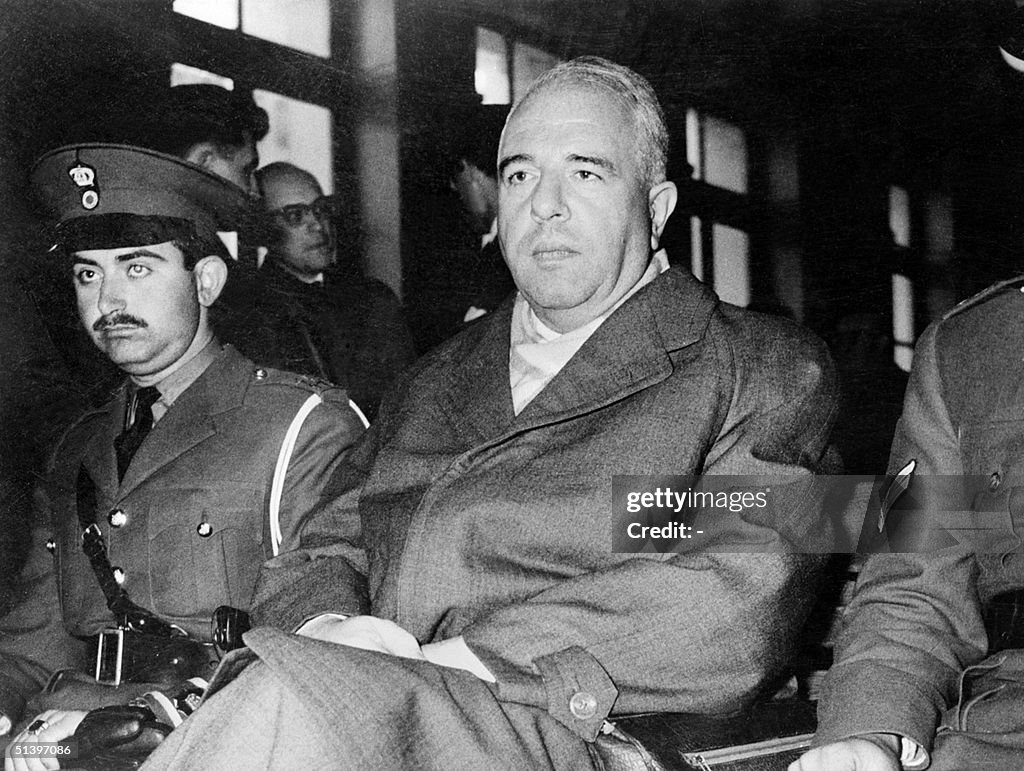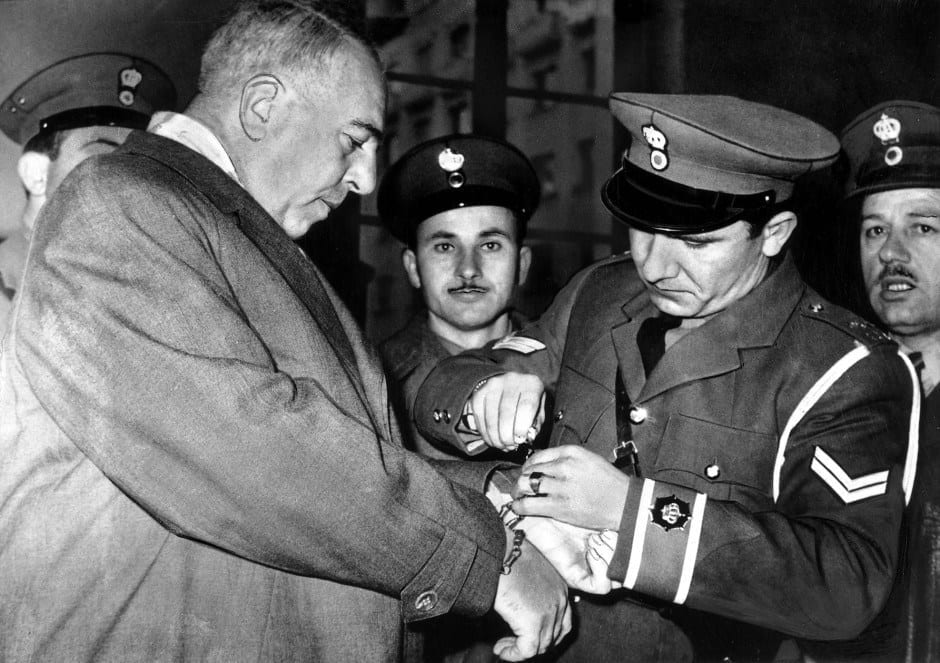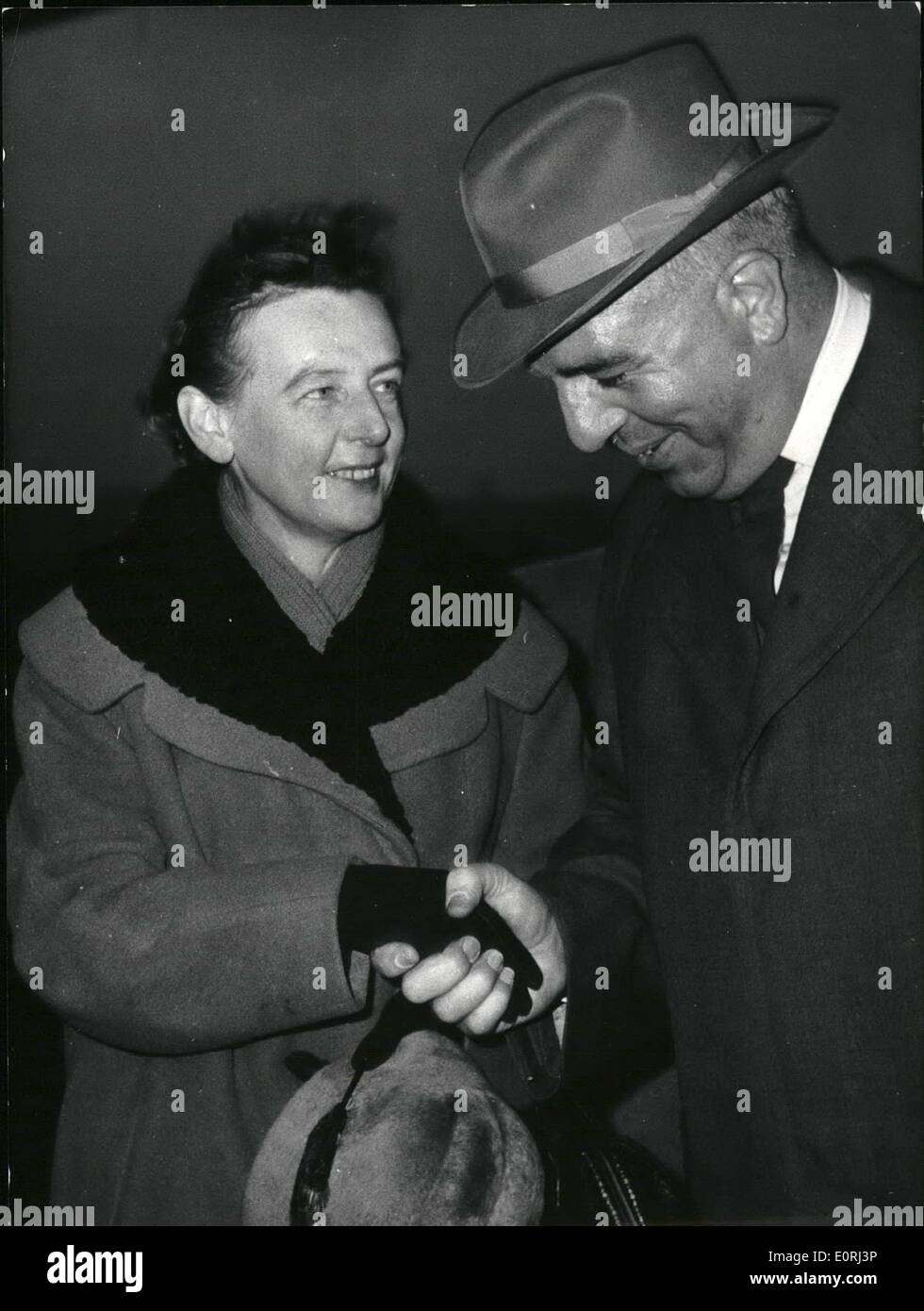Who Was Max Merten? The Nazi In Thessaloniki And His Crimes
Can a single individual truly embody the banality of evil, a concept so chillingly articulated by Hannah Arendt? The case of Max Merten, a Nazi official in Thessaloniki, Greece, serves as a stark reminder of how ordinary men can become instruments of unimaginable horror.
Max Merten was not a high-ranking SS officer with a penchant for ideological fanaticism. He was, in essence, a bureaucrat, a "Verwaltungsoffizier" (administrative officer) in the Wehrmacht (German army). Stationed in Thessaloniki, Greece, as a Hauptmann (Captain) attached to Army Group E, his initial responsibilities seemingly revolved around the mundane tasks of supplying troops and managing the civilian population in Western Macedonia. The Greeks in that region, primarily dealing with him for everyday necessities, perceived him as possessing considerable, even absolute, power. But beneath this veneer of administrative authority lay a sinister role in one of the most horrific events in human history: the Holocaust.
Merten's involvement went far beyond logistical duties. He was deeply implicated in the deportation of approximately 50,000 Jews from Thessaloniki to Auschwitz and other death camps. He was at the heart of the machinery of destruction that systematically stripped an entire community of its dignity, possessions, and ultimately, their lives. Eyewitness accounts suggest Merten was a key figure in the expropriation of Jewish wealth. It is alleged that he oversaw the seizure of gold, jewelry, and other valuables from the Jewish population before their forced removal to the extermination camps. This theft, a crime in itself, added another layer of depravity to his already reprehensible actions.
The enormity of his actions wasn't immediately recognized in post-war Germany. In 1952, he was even reinstated into the German Federal Ministry of Justice, a shocking indication of the lack of accountability and the pervasive presence of former Nazis within the West German government. This decision highlights the difficulties Germany faced in confronting its past and the challenges of bringing perpetrators of war crimes to justice.
| Category | Information |
|---|---|
| Full Name | Max Merten |
| Profession | Lawyer, Verwaltungsrat (Administrative Counselor) in the Wehrmacht |
| Role during WWII | Administrative Officer (Verwaltungsoffizier) of Army Group E in Thessaloniki, Greece |
| Key Actions | Involved in the deportation of approximately 50,000 Jews from Thessaloniki to extermination camps; Allegedly responsible for the confiscation of Jewish property |
| Post-War | Reinstated in the German Federal Ministry of Justice in 1952; Arrested in Greece in 1957 and convicted of war crimes |
| Trial | The Max Merten Trial in Athens. Convicted of war crimes in Greece in 1957. |
| Further Reading | Example Reference Website (replace with an actual reputable source) |
However, Merten's past eventually caught up with him. In 1957, he returned to Greece, perhaps emboldened by his connections within German society and his former ties with Greek collaborationist circles. It's possible he believed his actions would remain buried in the past. He was mistaken. He was arrested, tried, and convicted of war crimes. The trial, though a moment of justice, also revealed the complex web of relationships and the lingering influence of Nazi collaborators in post-war Greece. The Karamanlis government faced pressure and controversy surrounding the case, particularly concerning accusations against Greek citizens who had allegedly collaborated with Merten during the occupation. These claims were rejected, but they highlighted the deep divisions and unresolved issues within Greek society stemming from the war years.
The Jewish community of Thessaloniki suffered a catastrophic loss during the Holocaust. Before the war, it was a vibrant and thriving community, a center of Sephardic culture and learning for centuries. Merten’s actions were instrumental in the systematic destruction of this community. He oversaw the implementation of discriminatory policies, the forced segregation of Jews into ghettos, and the confiscation of their property, all of which paved the way for their eventual deportation and extermination.
- Unveiling Marilyn Mansons Provocative Musical Journey Discover His Genreblending Legacy
- Uncover Mark Levins Age Insights And Surprises Revealed
Reports suggest that Merten demanded exorbitant sums of money from the Jewish community in Thessaloniki. In 1942, he allegedly demanded 1.9 billion drachmas, a staggering amount at the time, purportedly as a ransom for their survival. This extortion demonstrates the calculated and ruthless nature of the Nazi regime's persecution of the Jews, turning their suffering into a source of financial gain.
While Merten faced some consequences for his actions, his story raises troubling questions about justice, accountability, and the enduring legacy of the Holocaust. The fact that he was initially able to resume a career in the German legal system underscores the difficulties in confronting the past and purging Nazi elements from positions of power. His case serves as a chilling reminder of the importance of vigilance, historical awareness, and the unwavering pursuit of justice, even decades after the crimes were committed.
The name Max Merten is largely unknown in Germany today. His role in the administrative apparatus of the Wehrmacht during the occupation of northern Greece has faded from public memory. However, his story remains a vital lesson in the dangers of unchecked authority, the banality of evil, and the enduring responsibility to remember and learn from the atrocities of the Holocaust. The actions of individuals like Merten, though seemingly insignificant within the vast machinery of the Nazi regime, were essential to the execution of its genocidal policies.
The study of Merten's life offers a biographical case study in dealing with the Nazi past. It allows us to examine the motivations, actions, and consequences of individuals who participated in the Holocaust, providing valuable insights into the complexities of this dark chapter in human history. Works like the dissertation authored by Wolfgang Breyer, a student of the historian Heinz A., contribute to our understanding of these events, ensuring that the lessons of the past are not forgotten.
The trial of Max Merten in Athens remains a significant event in the history of post-war justice. It was a rare instance of a Nazi official being held accountable for his crimes in the very country where they were committed. The trial, though controversial and politically charged, served as a powerful symbol of Greece's determination to confront its past and seek justice for the victims of the Holocaust.
The story of Max Merten is a cautionary tale, a reminder that even seemingly ordinary individuals can become instruments of extraordinary evil. His actions in Thessaloniki had a devastating impact on the Jewish community, contributing to their near-total annihilation. By remembering his story, we honor the memory of the victims and reaffirm our commitment to preventing such atrocities from ever happening again. The gold and jewelry he stole weren't just material possessions; they represented the lives, culture, and future of a community that was systematically destroyed. The pursuit of justice, even decades later, is essential to ensuring that the perpetrators of such crimes are never forgotten and that the lessons of the past are never erased.
The pursuit of justice against individuals like Merten is a testament to the enduring power of remembrance and the unwavering commitment to holding perpetrators of war crimes accountable. It reinforces the principle that even decades after the events, the pursuit of justice remains a moral imperative. The victims of the Holocaust deserve to have their stories told and their suffering acknowledged, and the pursuit of justice, however delayed, is a crucial part of that process.
- Demystifying Khaids Net Worth A Journey Of Music Hustle And Smart Investments
- Alex Ottis Age Unlocking The Secrets Of Success And Legacy

Dr Max Merten attends his trial in Athens in 1959. Dr Max Merten

MERTEN MAX IN THESSALONIKI Πολατίδης Ανιχνευτές Χρυσού

Dr merten hi res stock photography and images Alamy